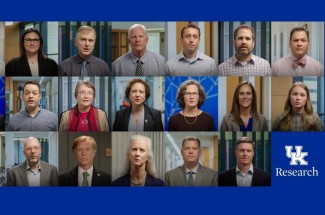Research Advancing Kentucky: How NIH-funded discoveries drive UK’s impact

The University of Kentucky plays a critical role in advancing the health, well-being and future of the Commonwealth through impactful research.
As Kentucky’s flagship, land-grant institution, UK focuses its resources, expertise and key partnerships to address the challenges facing our state to improve the quality of life for Kentuckians.
As researchers at this university, we have the privilege of receiving funds from the National Institutes of Health (NIH) to support the work we do on behalf of Kentucky.
Every day across our campus, there are fundamental discoveries happening in our research labs. These innovations become new therapies and treatments for patients across UK HealthCare.
Cancer, cardiovascular diseases, diabetes, substance use disorders and obesity — all are critical health issues facing Kentuckians. Our research shapes the way we understand these diseases by asking the questions needed to ultimately improve care and quality of life.
Our innovative approaches create new knowledge, deepening our understanding and ability to solve problems.
All this work — this passion for transformative science — is then passed on to the next generation of scientists. Our faculty on this campus are dedicated to investing in the careers of our young researchers.
We do this with the support of the NIH.
In fiscal year 2024, federal agencies awarded UK $264.4 million (54.1% of UK’s total awards for research). NIH funding made up $163.1 million of our federal awards.
UK Research is launching a video series so you can meet many of our researchers whose work is directly funded by NIH institutes and centers.
You’ll hear how their work — with this funding — drives advancements in the health and wellness of Kentuckians every single day.
Ilhem Messaoudi, Ph.D.
Acting Vice President for Research
Learn more about each featured researcher here.
You can watch all of the videos in this series on Research Communications’ YouTube channel.




